Looking for adventure? Go to sea and discover exotic lands — unlimited riches are awaiting in the new world! Such declarations provided the allure for sailors during the Age of Discovery (also known as the Age of Exploration), an era from the early 15th century lasting through the 17th century in which European ships set sail around the globe in search of treasure, new trading routes, and territorial conquest.
Portuguese navigators are credited with kickstarting this global expansion with voyages to the Orient and Africa, and later the Americas with other European nations. Ultimately, sailors often left home never to return again — all the while risking a horrible death and taking part in the slaughtering and enslaving of indigenous people along the way. Sign up today!
10. Stormy Weather
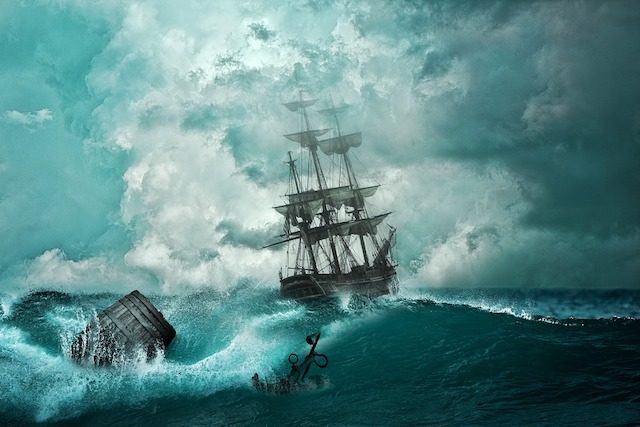
Anyone prone to motion sickness can attest that travel by boat ain’t exactly a pleasure cruise and often results in projectile vomiting. But with no other viable means of crossing the Atlantic, mariners also had to endure unpredictable weather conditions such as hurricanes, freezing temperatures, and rogue waves.
Catastrophic storms in the Caribbean would create a vast graveyard of sunken Spanish Galleons loaded with booty. Modern-day shipwreck hunters continue to find gold off Florida coast, including items from the famous 1715 Treasure Fleet en route from the New World to Spain.
On July 31, 1715, a powerful hurricane sent 11 of the fleet’s 12 ships to the bottom of Davy Jones’ locker. The tragedy claimed the lives of 1,500 sailors — and even worse — later inspired the vapid rom-com Fool’s Gold starring Mathew McConaughey and Kate Hudson.
9. Punishment
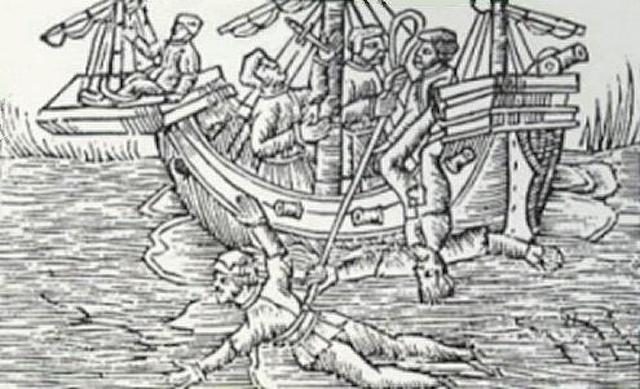
Living conditions for the average sailor often meant tight, smelly quarters, rotten food (if any), and working around-the-clock shifts. Adding to the misery, the men were subjected to severe abuse by sadistic officers hellbent on maintaining discipline. This created an environment which sometimes led to mutiny such as the case involving legendary British explorer, Henry Hudson (no relation to Kate).
Flogging provided the most common form of punishment and featured a particularly brutal variation called “kissing the gunner’s daughter” in which the offender was tied to a cannon (the gunner’s daughter) and repeatedly whipped with a ‘cat o’ nine tails.’ Additionally, crewmen could be bound to a rope, swung overboard and ‘keelhauled’ (dragged underneath of the ship), and in extreme cases, were simply hanged to death.
8. Slavery
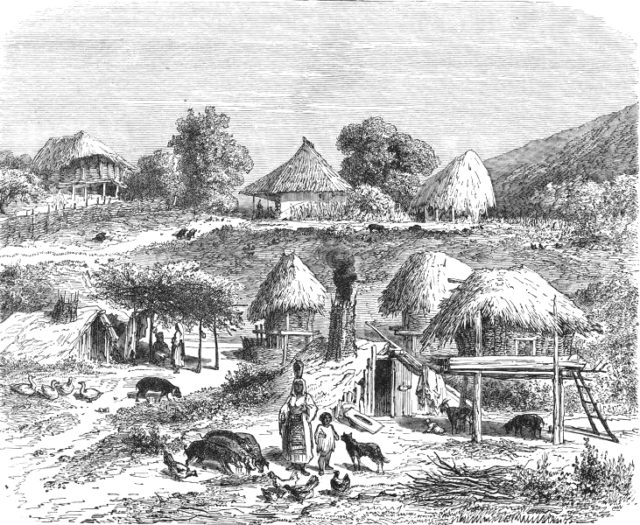
Historians estimate that over 11 million people from Africa were enslaved by European captors beginning in the late 15th century. Massive plantations in the New World required equally extensive manpower to carry out the brutal work, resulting in a slave trade that lasted four centuries.
European powers established colonies in the Americas mainly on the backs of forced labor, inflicting unimaginable hardships in the name of Empire building. But first, human cargo had to be transported in shackles on slave ships teeming with bacteria and reeking of the putrid stench for journeys lasting up to two months. The so-called middle passage across the Atlantic claimed countless lives from a combination of bad weather, inhumane conditions, disease, or those who simply jumped overboard rather than continue the Hellish voyage.
7. Genocide
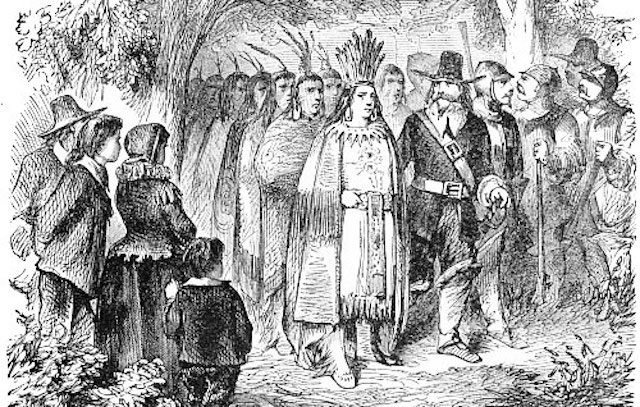
For many Americans, Thanksgiving is a time-honored tradition when families gather to give thanks, enjoy a bountiful feast, and watch the Detroit Lions get pummeled (usually) on national TV. The origin of the holiday commemorates the first harvest of the Pilgrims, who settled at Plymouth, Massachusetts in the early 17th century among several indigenous tribes.
Any lasting goodwill, however, quickly faded as relations between Native Americans and the new arrivals were soon marred by bloodshed, mistrust and a variety of diseases that decimated America’s original inhabitants.
Epidemics eventually claimed the lives of roughly 75 percent of native people throughout the North American continent. The spread of highly contagious illnesses such as smallpox and measles became a death sentence for those with no immunity. The passing down of knowledge and traditions by tribal elders also died a tragic death, creating devastating implications for future generations that persist today.
6. Lost and Found
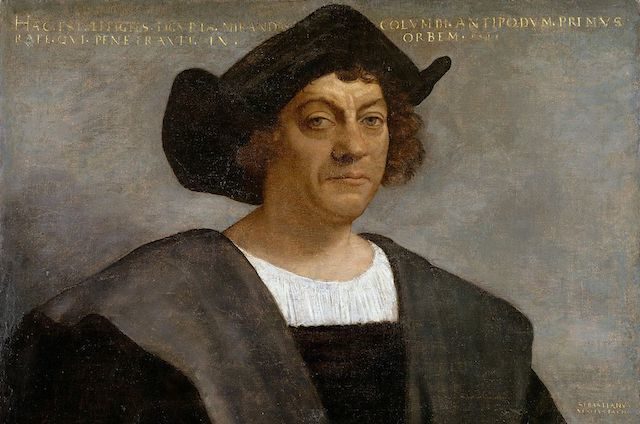
“In fourteen hundred ninety-two
Columbus sailed the ocean blue.”
And so begins the famous children’s poem — a tale filled with more inaccuracies than a dishonest politician’s stump speech. For the record, Christopher Columbus did NOT discover America. That honor goes to Viking leader, Leif Eriksson, who touched down in modern-day Newfoundland nearly 500 years before the Niña, Pinta, or Santa Maria ever left port.
Columbus did, however, manage to get his crew hopelessly lost. Like most early explorers, he relied solely on rudimentary navigational tools and knowledge of astronomy and the trade winds. The soon-to-be immortalized (and controversial) Italian sailing under a Spanish flag eventually covered over 4,000 miles through uncharted waters.
After spending 36 days at sea, he sighted land in the Bahamas, shores he believed to be India and therefore populated by “Indians” — a misnomer that would eventually apply to all indigenous people of the Americas.
5. Rats

In 2015, a cell phone video went viral, showing a rat dragging an entire slice of pizza down the stairs into the subway in New York City. The ravenous rodent, dubbed “pizza rat,” didn’t bode well for the Big Apple’s already vermin-infested reputation, a blight attributed to English and French ships in the 1700s during the colonization of North America.
The crew on those vessels would have been most at risk to the plethora of diseases that rats can transmit. Cramped conditions below deck often led to direct contact via saliva, urine or feces, and indirectly with contaminated food stores. Additionally, rats carry fleas that are vectors of diseases such as bubonic plague, typhus, and spotted fever.
4. Unfriendly Foes

Magellan. Cook. Ponce de Leon. Famous explorers who pushed the boundaries to discover new lands and forever stamp their mark on history. These enduring legacies, however, also share an ignominious common thread: they were all killed by hostile natives.
Although his Portuguese ships circumnavigated the world, Ferdinand Magellan didn’t complete the round trip after being struck by a bamboo spear in the Philippines. Spanish explorer Juan Ponce de Leon never discovered the fabled Fountain of Youth in his many explorations of Florida, but in 1521 a poison arrow from Calusa warriors found him.
And finally, British Captain James Cook receives high marks for at least drawing his last breath in paradise. The intrepid navigator best known for mapping much of the South Pacific died in Hawaii during a botched kidnapping of the Island’s ruling chief, Kalani’opu’u. Bold plan? Maybe. Ill-advised? Definitely. Fans of The Brady Bunch will recall that it’s not even a good idea to possess a cheap Tiki figure — let alone trying to swipe a living monarch from Kealakekua Bay.
3. Scourge of the Seas
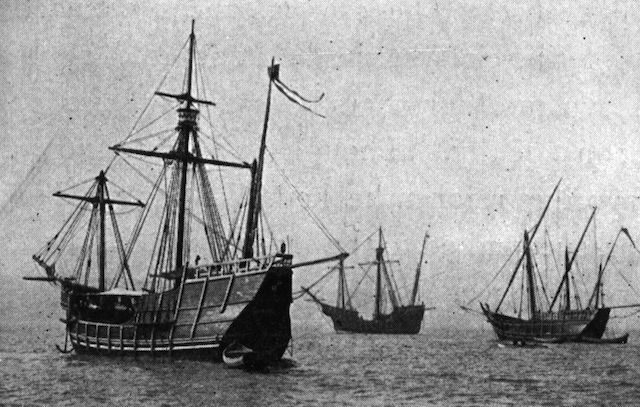
The importance of eating fresh fruits and vegetables is instilled in most people at an early age. Unfortunately, life at sea eliminated this dietary necessity, resulting in a fatal Vitamin C deficiency called scurvy, aka “scourge of the seas.”
More than two million sailors died from affliction between the early 16th and the mid-19th century. According to historian Stephen Bown, scurvy led to more deaths at sea than storms, shipwrecks, combat, and all other diseases combined. Side effects from scurvy produce the kind of horrific damage usually found on an episode of The Walking Dead. The body gradually disintegrates both internally and externally as arteries and capillaries decay, causing ulcers, seizures, and breaks in the skin.
It’s also worth noting that the British navy began supplying its sailors with limes — hence the nickname “limey.”
2. Up In Smoke

A 2015 study by researchers from the American Cancer Society revealed that cigarette smoking causes nearly half the deaths from 12 different types of cancer, including areas of the liver, colon, rectum, lung, throat, esophagus, larynx (voice box), stomach, pancreas, bladder, kidney, and cervix. And you guessed it — the Age of Exploration introduced the world to deadly habit of smoking.
Shortly after Columbus arrived in the Caribbean, locals on the island of San Salvador presented him a gift of dry tobacco leaves. The explorer, unaware of the plant’s purpose, tossed them overboard. But he soon learned its esteemed value, as did other European explorers, who cultivated the highly addictive and wildly lucrative cash crop.
1. Hard Pressed
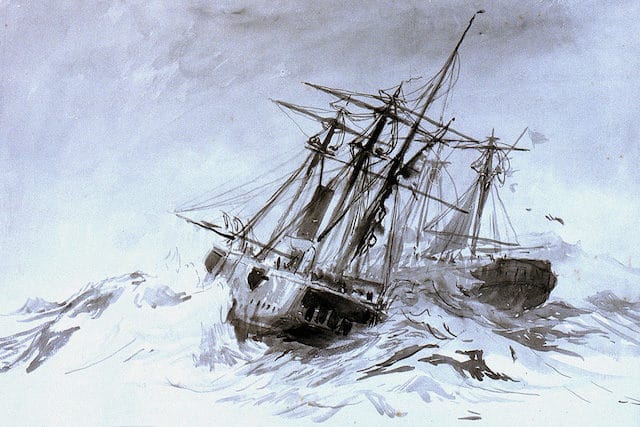
In their quest to rule the world, the British Empire granted the Royal Navy authority to force recruits into military service. The practice, known as impressment, dates back to Elizabethan times when “press gangs” rounded up vagrants or those of little or no means to fill ships’ crews.
Sailors had to be at least 16 years old to join, but some boys as young as 7 or 8 were pressed into action to serve as “powder monkeys.” These children provided a critical but hazardous task of ferrying gunpowder from the ship’s hold to artillery weapons and were favored by officers for their ability to maneuver more quickly than adults in crowded spaces.
Over time, press gangs gave way to crimps — an unscrupulous lot who introduced the term “shanghai’d” by abducting men for ships headed towards the Chinese hub. Crimping thrived in English port cities such as London and Liverpool as well as the West Coast of the United States. Portland eventually became the shanghaiing capital of the world and featured a series of underground tunnels above bars and flophouses, where men could be lured into a night of heavy drinking only to wake up on a boat far from home.